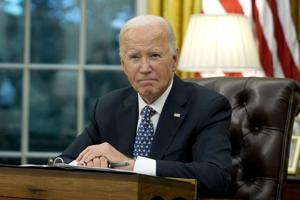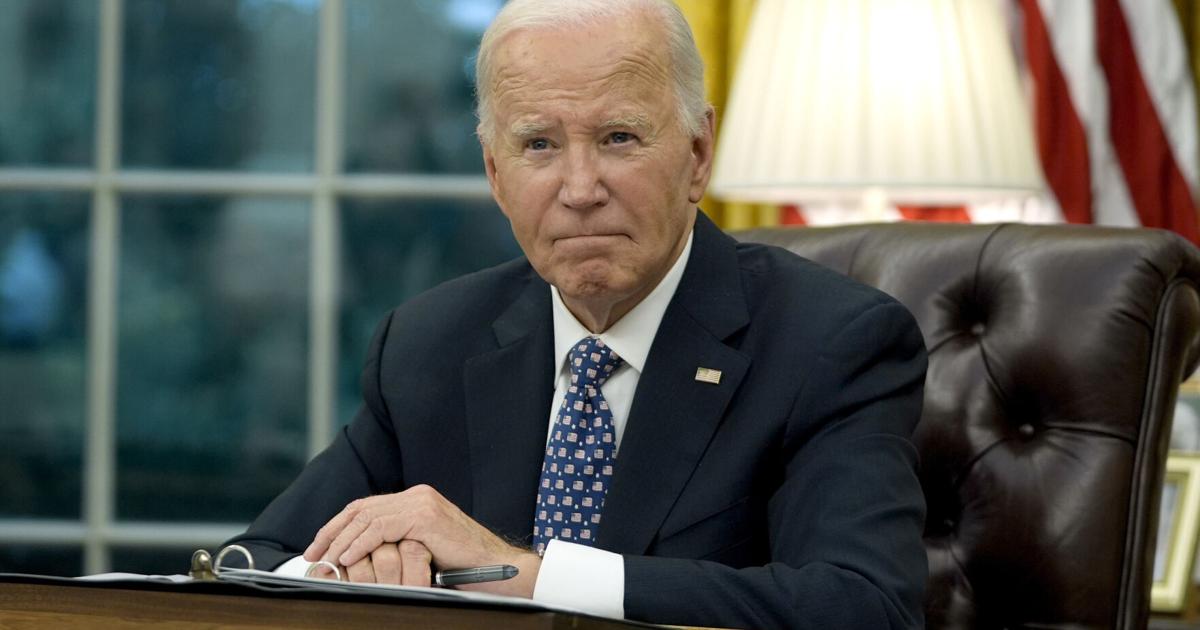

WASHINGTON (AP) — In Joe Biden’s family, there’s a saying that the three worst words anyone can hear are “you have cancer.”
One decade ago, his son Beau died from a brain tumor. Several years later, his wife Jill had two cancerous lesions removed in her own brush with the disease.
Now it is the former president’s turn. Biden’s office disclosed his prostate cancer diagnosis over the weekend, saying it has already spread to his bones.
Although the cancer can possibly be controlled with treatment, it is no longer curable. The announcement is a bitter revelation that a disease that has brought so much tragedy to Biden’s life could be what ends it.
“Cancer touches us all,” Biden wrote on social media. “Like so many of you, Jill and I have learned that we are strongest in the broken places.”
Even before the diagnosis, Biden’s post-presidency was shadowed by questions about his health and whether he should have run for reelection. As questions about his fitness for office mounted, he abandoned the campaign and Donald Trump retook the presidency by defeating Kamala Harris. As the 82-year-old Biden works to safeguard his damaged political legacy, he’ll also be fighting a disease that shaped the final chapters of his decades-long career.
Biden was serving as Barack Obama’s vice president when Beau died in 2015. He decided not to seek the Democratic nomination the following year, which helped clear a path for Hillary Clinton, who lost to Trump in 2016.
Valerie Jarrett, a longtime Obama adviser, said Biden wanted to “channel his grief into action and figure out how we can do better” on treating cancer to “make sure that other people didn’t have to go through what he went through.”
The effort was formalized as a White House task force, with Biden in charge. After a few years out of office, Biden re-entered politics to campaign against Trump in 2020. The heartache from Beau’s death was never far from the surface though. His eldest son had been Delaware’s attorney general and often viewed as Biden’s political successor.
“Beau should be the one running for president, not me,” Biden said, a thought he echoed on many occasions.
He made fighting cancer a focus for his presidency, resurrecting a “moonshot” initiative to increase funding for research and improve treatment. He unveiled the initiative at the John F. Kennedy Presidential Library and Museum in 2022, echoing the Democratic icon’s famous speech declaring that “we will go to the moon” six decades earlier.
“Beating cancer is something we can do together,” Biden said.
By this point, he had already signed legislation known as the PACT Act to expand healthcare benefits for veterans. The law guarantees treatment for chronic illnesses blamed on burn pits, which were used to dispose of chemicals, tires, plastics, medical equipment and human waste on military bases.
Biden left no doubt that he believed Beau’s death resulted from his service with the National Guard in Iraq.
“When they came home, many of the fittest and best warriors that we sent to war were not the same — headaches, numbness, dizziness, cancer,” he said. “My son Beau was one of them.”
Denis McDonough, who led the Veterans Affairs Department under Biden, said the president didn’t talk about Beau’s death during policy discussions. But he said it was clear that Biden “knew the experience that other families were having, and he was going to be damn sure that we weren’t going to miss an opportunity to address that.”
McDonough recalled that Biden wanted the new law to take effect as quickly as possible.
“He had an option to stretch it out,” he said. “He said no way.”
The following year, first lady Jill Biden had two cancerous lesions removed, one above her right eye and the other on her chest. They were both basal cell carcinoma.
Learning of the diagnosis “was a little harder than I thought,” she told The Associated Press during a trip to Africa.
“I’m lucky,” she said. “Believe me, I am so lucky that they caught it, they removed it, and I’m healthy.”
Biden’s cancer diagnosis is not the first time that he’s faced his own mortality.
Months after ending his first presidential campaign in 1988, he collapsed in a New York hotel room. In his memoir “Promises to Keep,” he described “lightning flashing inside my head, a powerful electrical surge — and then a rip of pain like I’d never felt before.”
He had suffered a brain aneurysm that required surgery. Biden wrote that “I had no real fear of dying. I’d long since accepted the fact that life’s guarantees don’t include a fair shake.”
McDonough imagined that Biden would feel similarly about his current situation.
“He’s always on to the next fight,” he said.
